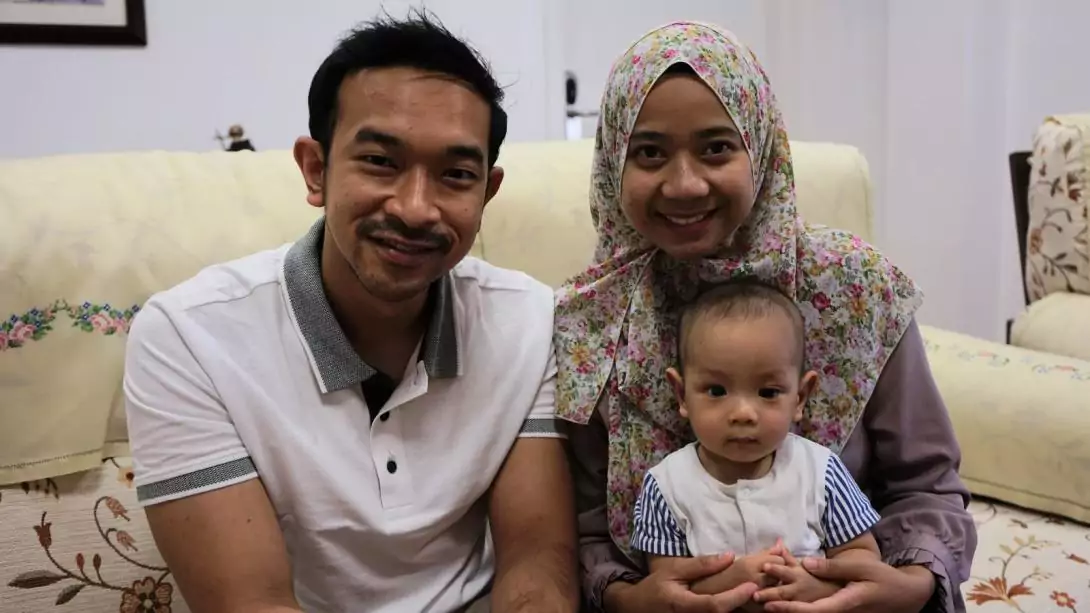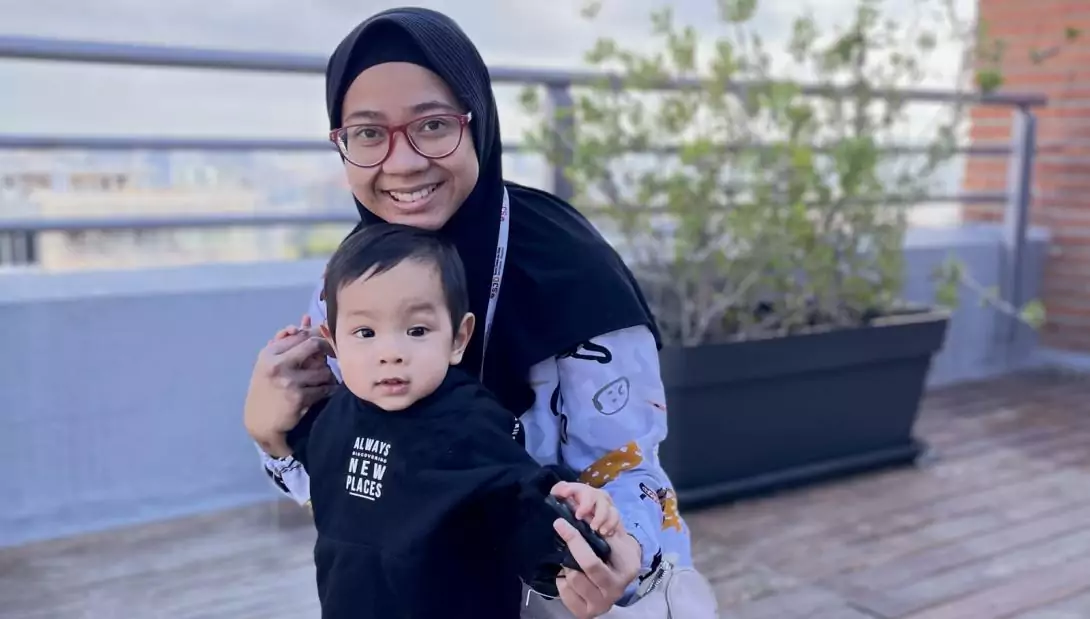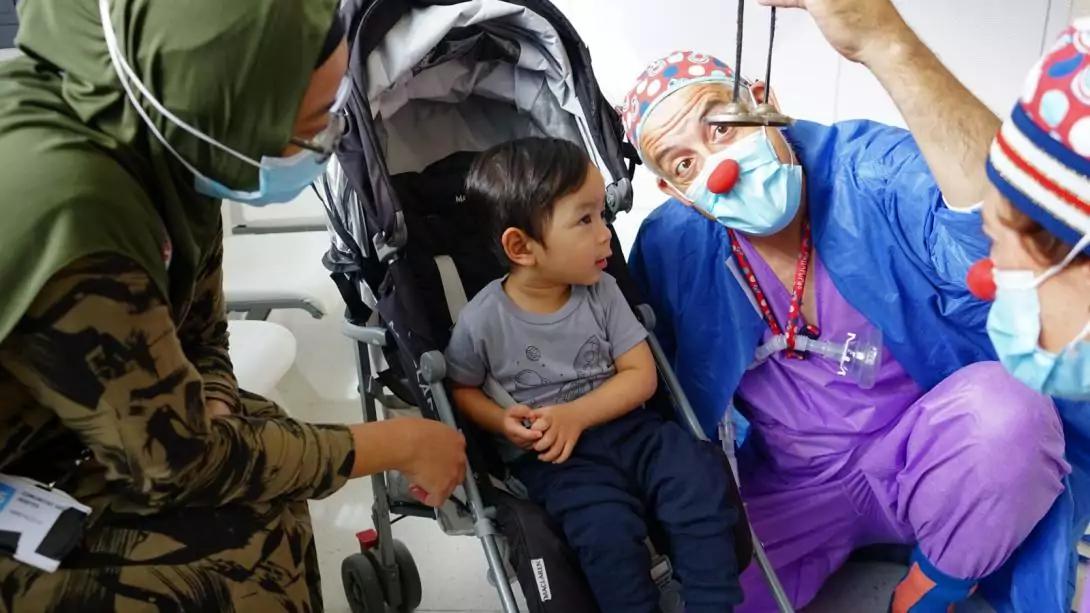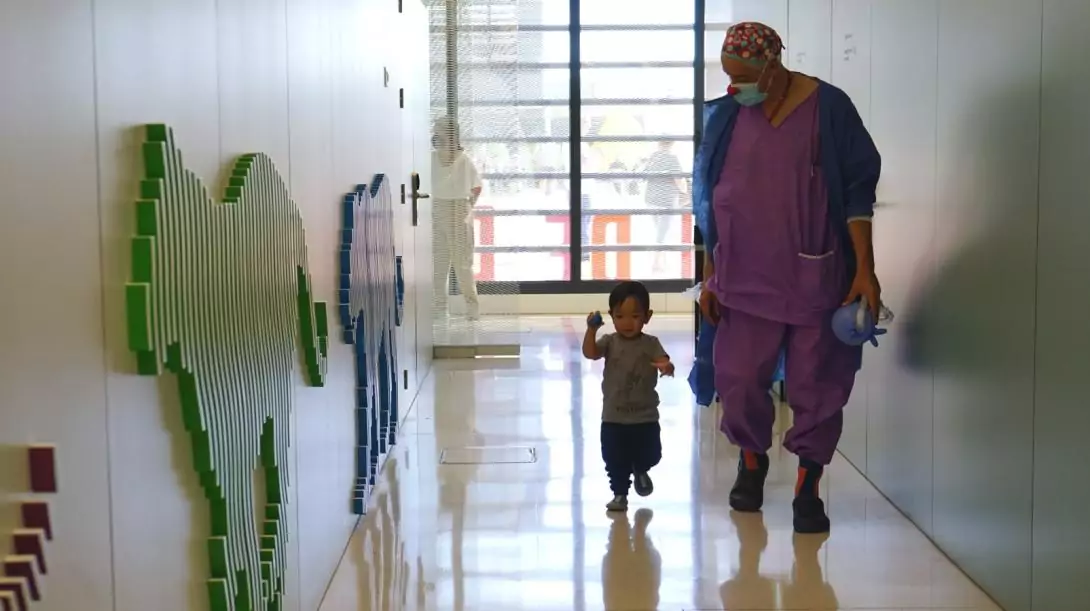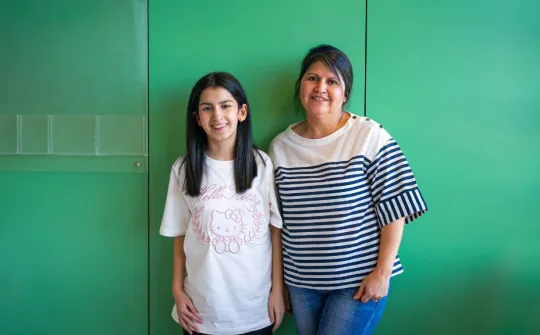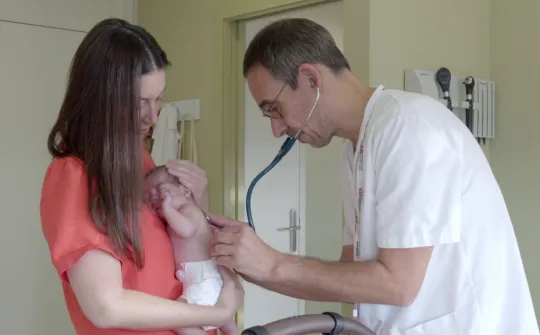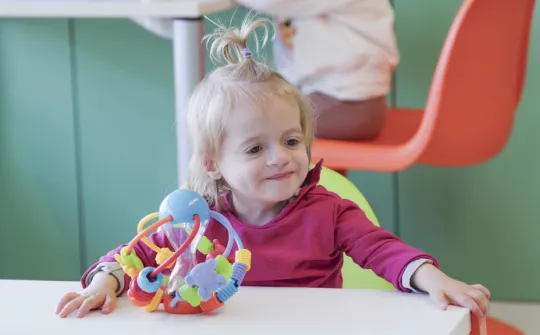Retinoblastoma stabilised with intra-arterial chemotherapy that had no treatment options in the country of origin
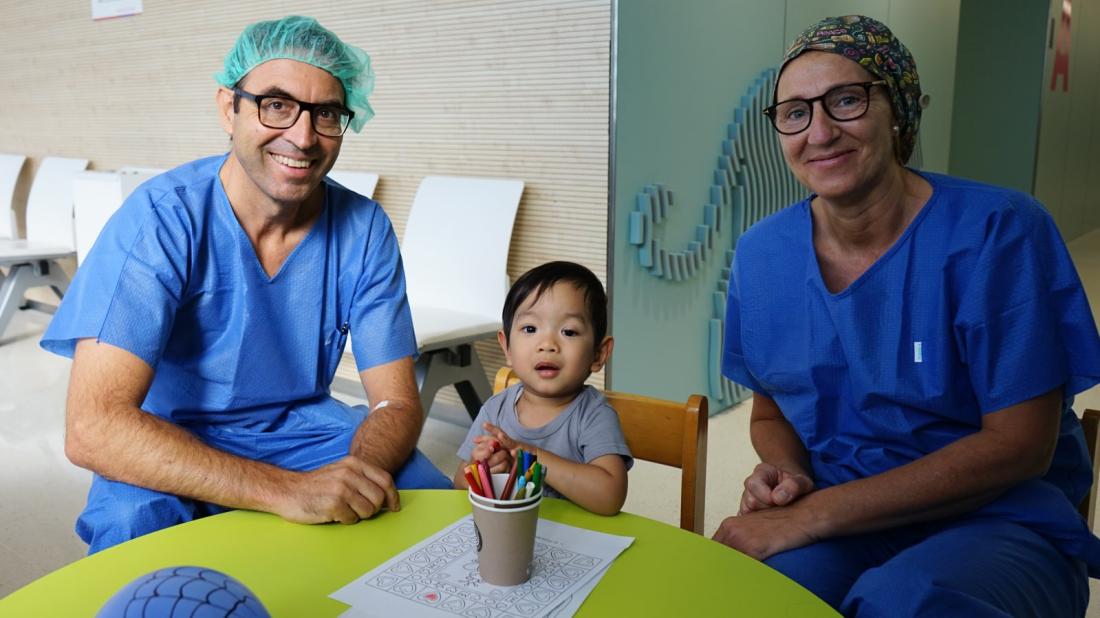
The patient, a baby who started treatment when he was just one year old, came to Barcelona from Indonesia in search of treatment for bilateral retinoblastoma for which he had one eye enucleated.
Kensi arrived with his family in Barcelona in May 2021. When he was just a few weeks old, his family realized that the little boy could not see well, did not play, and did not follow the games proposed to him with his eyes. In Indonesia, his country of origin, they suggested waiting until he was four months old to see what was wrong.
However, Kensi's family did not want to wait and, observing that the little boy had a white glow in both eyes when a photograph was taken using flash, they suspected that something was wrong and sought a second opinion from an ophthalmologist. The diagnosis came when the child was three months old: it was bilateral retinoblastoma. The doctors advised them to enucleate the patient's left eye due to the advanced stage of the tumour: it was necessary to prevent it from spreading and to operate as quickly as possible. After the enucleation, the little boy underwent four sessions of intensive chemotherapy to treat the right eye, which he kept.
It was at this point that the family decided to explore other options for treating their son: from hospitals in India and Singapore to the United States. Searching for the best possibilities, a paediatric ophthalmologist advised them to contact Dr. Guillermo Chantada. The family quickly gathered and sent all the clinical information regarding their son's case and, a few weeks later, the case was approved by the assessment committee and the baby and his parents flew to Barcelona.
Intra-arterial chemotherapy and multidisciplinary care
A few days after arriving at SJD Barcelona Children's Hospital, the little boy began treatment. A team leaded by Dr. Jaume Català performed several cycles of intra-arterial chemotherapy, which consists of delivering the drug directly to the main artery that supplies blood to the tumour. In addition, the drug dose is adjusted to the child's age and weight, which minimizes the side effects of the drug.
This treatment was particularly useful in the case of Kensi, who had received intensive intravenous chemotherapy in his home country, a treatment that was not effective enough and was hindering the child's growth and weight gain. A multidisciplinary team, apart from the Oncology Department and the Ophthalmology Department, monitored the little boy to offer nutritional guidelines if necessary, with the aim of alleviating the delay in growth.
A few weeks after the first sessions, the child progressed favourably, and the tumour stabilized, with the consequent recovery of part of the child's vision. However, Kensi relapsed and treatment had to be maintained for a few more months. Subsequently, the response was consolidated with laser treatment on the retinal tumours, which allowed the eye and normal vision to be preserved.
The family of the little boy, who has spent most of his first two years of life at the SJD Barcelona Children's Hospital, is satisfied with both the evolution of the child and the care received: "We had feared for our son's life, and within weeks our lives had changed. Additionally, everything in this hospital is designed for the children's comfort: the treatments are adapted to them, and the equipment avoids suffering and discomfort as much as possible. We have felt at home since we arrived", concludes Kensi's father.
